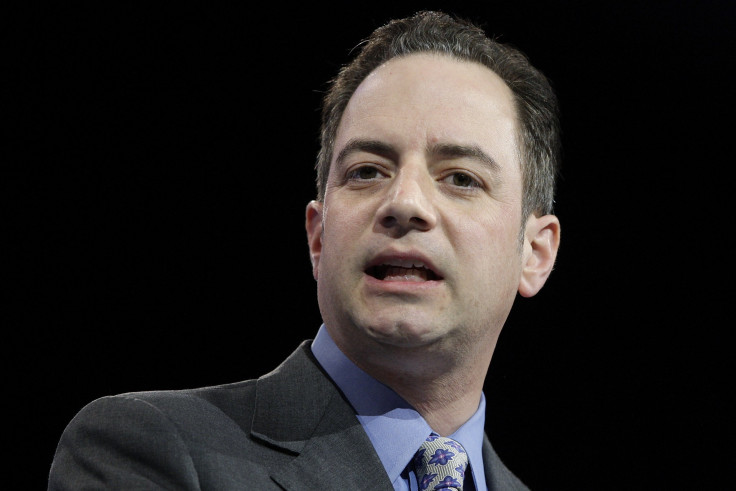Midterm Elections 2014: Republicans Claim Better Voter Data Collection After Romney App Debacle

If you’re planning to cast a ballot in Tuesday’s midterm election, chances are that both parties already know who you’re voting for. The GOP may be framing this election as a rebuke to President Obama's policies, but the Republicans have worked hard to replicate his voter-turnout machine. That means data collection is here to stay.
Both Democrats and Republicans have continued to send campaign workers out into neighborhoods to knock on doors and remind voters to come to the polls. But this year, those volunteers aren't ringing doorbells at random households but at addresses where data has indicated that an in-person interaction might sway the homeowner’s vote. Staffers now mine voters’ social media profiles for likes and dislikes and look at what magazines they subscribe to, what kind of car they have and other information indicating which candidate a person likely supports.
In 2012, the Obama campaign and the Democratic National Committee blindsided Republicans when they released a mobile app that made it possible for neighborhood canvassers to identify a voter’s name, age, gender and political affiliation all before they walked up to that person’s door. That app digitized and distributed all the information that’s traditionally been available in campaign field offices, eliminating the need for clipboards and allowing volunteers to immediately report who the voter they just met was likely to cast a ballot for, if at all.
Republicans are still playing catchup two years later, but the GOP has made strides since Mitt Romney’s Project ORCA infamously crashed on Election Day, leaving the Republican presidential campaign largely in the dark about what the day's outcome would be. Republican National Committee leaders maintain that they’ve improved on the 2012 campaign’s antiquated techniques.
“One thing that’s a lot different this time around than two years ago -- about 75 percent of the data that we are collecting out in the field is through one of our mobile canvassing Apps, which means we are getting real-time information from the field back here,” RNC National Field Director Matt Mason told Fox News in October.
Leading that effort has been the “Voter to Voter” Facebook app, an RNC project that launched at the end of September and takes inspiration from the ALS Ice Bucket Challenge. As in that viral video campaign, Republican supporters have been pressured to vote by social media connections who promise their support to a specific candidate and then “challenge” others to join them.
“There will be a close election in every state this year and EVERY vote is going to matter,” the Voter to Voter challenge states. “Pledge that you will vote this year and then challenge friends to do the same. Announce your pledge on Facebook … then choose friends you want to challenge to take the pledge as well.”
To help ramp up Republican turnout efforts, the party hired Andy Barkett, a former Facebook engineer, as the RNC’s chief technology officer. Barkett admitted to the Wall Street Journal that “there was some culture shock” when he learned how reluctant various Republican coalitions were to share data with each other, thus limiting the effect of any software he builds for the RNC.
“Most of the technology vendors were political people who played the most videogames in college, right?” he said at a 2013 media event of the GOP data deficiency. “They weren’t necessarily real technologists.”
Representatives from consulting firms clashed with campaign officials over which email addresses and phone numbers to share, as well as what to do with that information during and after races. Barkett has also made enemies in the GOP for opposing telemarketing and certain kinds of digital outreach, the Journal reported. Those internecine fights stand in telling comparison to DNC Chairman Howard Dean’s data takeover in 2005, when he invested millions of dollars to store data about voters from all states in a single, easy-to-navigate location.
Still, even the most refined data collection methods -- or lack of them -- may not change the outcome of an election. Republicans are expected to take control of the Senate, keep control of the House of Representatives and retain the majority of state governorships. Those forecasts aren’t predicated on high-tech turnout tactics, but issues such as the economy, immigration, foreign affairs, and a general dissatisfaction with President Obama's leadership.
“Republicans are more energized. Democrats are not,” Democratic strategist Chris Kofinis told Fox. “That’s going to be a problem, because at the end of the day you can only bring out voters who want to come out.”
© Copyright IBTimes 2024. All rights reserved.











